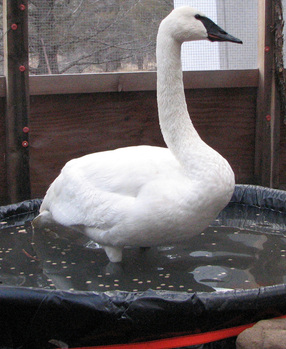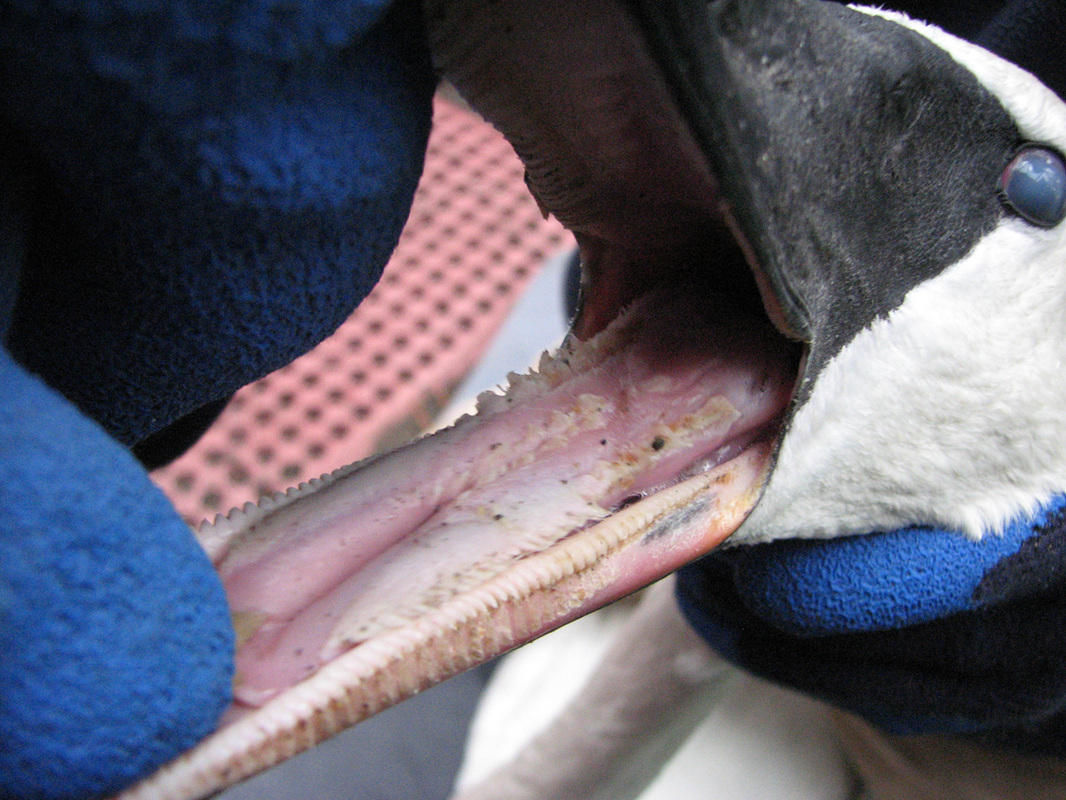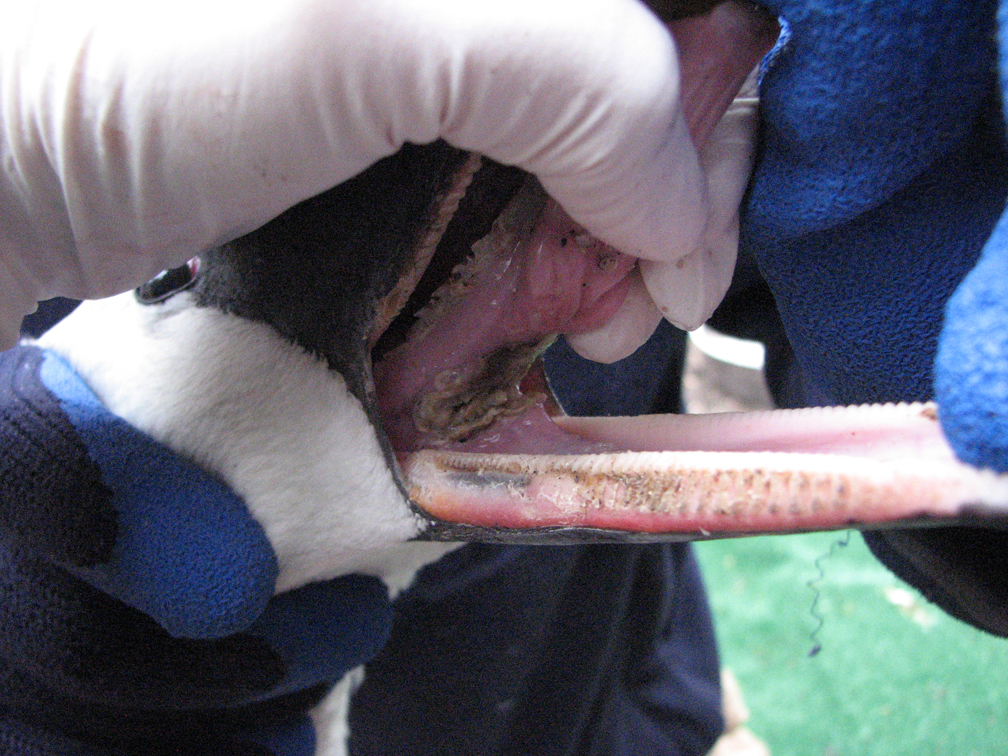 Grace is doing great. She had a lot of old dead tissue in her mouth removed on Tuesday, and is back to eating a lot and bathing again. Here you can see she likes to make a mess of her pool fairly quickly after us cleaning it. I am still trying to get her to eat the "good stuff" - Mazuri waterfowl feed which is meant for birds like her and so much better than bread or corn (which are just full of sugar). But she shuns it. She has little time left with me, ODFW is deciding what they would like to do with her and when. A decision that I am glad is not in my hands but those who know best. She has a lot of support with our local fish and wildlife professionals. She is a lucky bird, she has many advocates. Here are some pictures of her tongue now after a couple days post tissue removal (debridement). Look at that clean, pink tongue. Thanks to Dr. Cooney for cleaning her up. Grace has had lots of other support too from my network of waterfowl rehab experts around the country that I have been consulting with. In particular, IBRRC, Michele Goodman, and Dr. Miller. Grace is my first swan and I really was not set up for her. I have ideas on what I would do differently now though. She's been a good sport though thankfully, a sweet bird. Though any bird with a 7 foot wing span who has quite a strike with that huge wing is both intimidating and can hurt you. So, though she has been "sweet" she is a challenge, specially if you have to catch her 2x a day to medicate her. Grace will get rid of this remaining tissue fairly soon. It will likely just get removed naturally as she eats. Her feet are iffy and she needs to get off of them. Swans more than anything need to be on water and in rehab if they are not able to swim in a large pond or stock tank, they will develop foot issues quickly. In fact for most water birds (grebes, loons, merganzers, and many ducks) captivity injuries make up the the main reasons these birds become unreleasable. It is often better to just let the bird heal on its own after some minimal treatment than letting the bird languish in rehab. Few places who do these birds now even keep swans, most just treat and release. Grace was somewhat different due to the extent of her injuries. Foot injuries are most likely as birds that are not adjusted to bearing weight on their feet for long periods (like Canada Geese do in comparison), wind up with the toe joint swelling. These then become hot spots - like bed sores - and then can become abraded and raw. Infection can ensue. Release is wisest at that point as continued weight bearing will make it worse. There is only one thing the bird needs to do - swim. Their feet - as most water birds - will dry out from not being water nearly 24/7. They can also get keel (chest bone) injuries from bearing weight on their chests. When in water, the body is fully buoyant and supported. Waterproofing is next to go, if not sooner. Waterproofing is about the proper structure and alignment of the feathers. In rehab they preen less simply from stress. Well that was likely more than you ever wanted to know about rehabbing swans! My apologies. Will let you know what happens next soon.
Jane Tibbetts
1/9/2014 09:34:11 am
It's wonderful to have you share so much about Grace! Her tongue looks good. Comments are closed.
|
AboutNative Bird Care's is celebrating its 10th anniversary! Our main focus is song, shore, and waterbirds. We offer specialized care and facilities for these extraordinary birds.. Archives
July 2024
Categories
|


 RSS Feed
RSS Feed